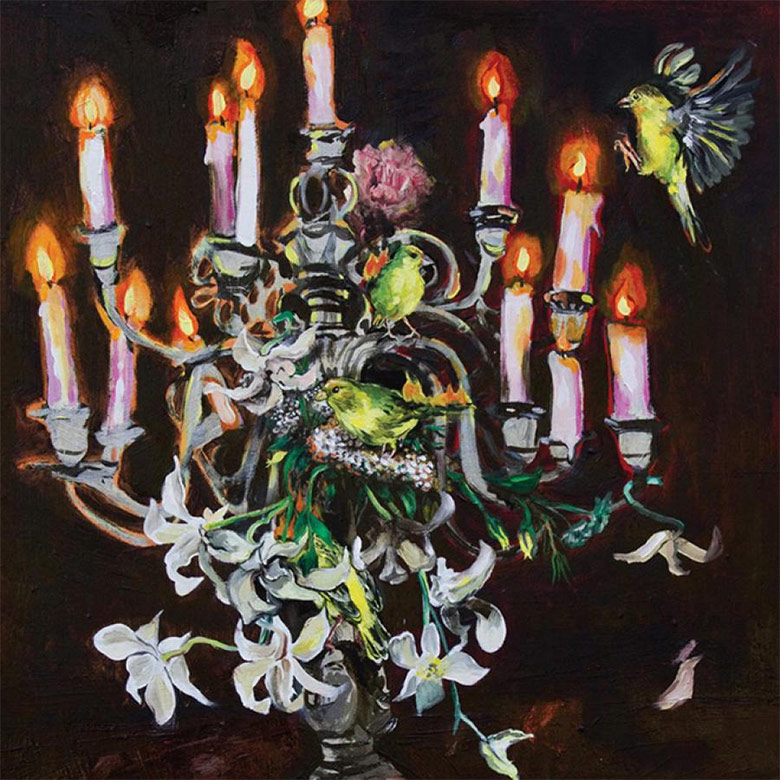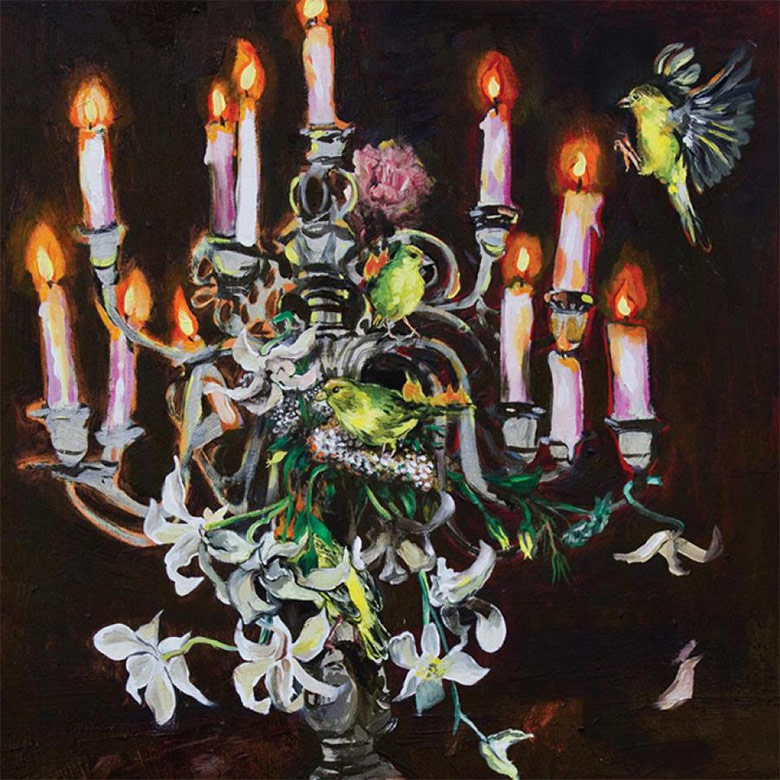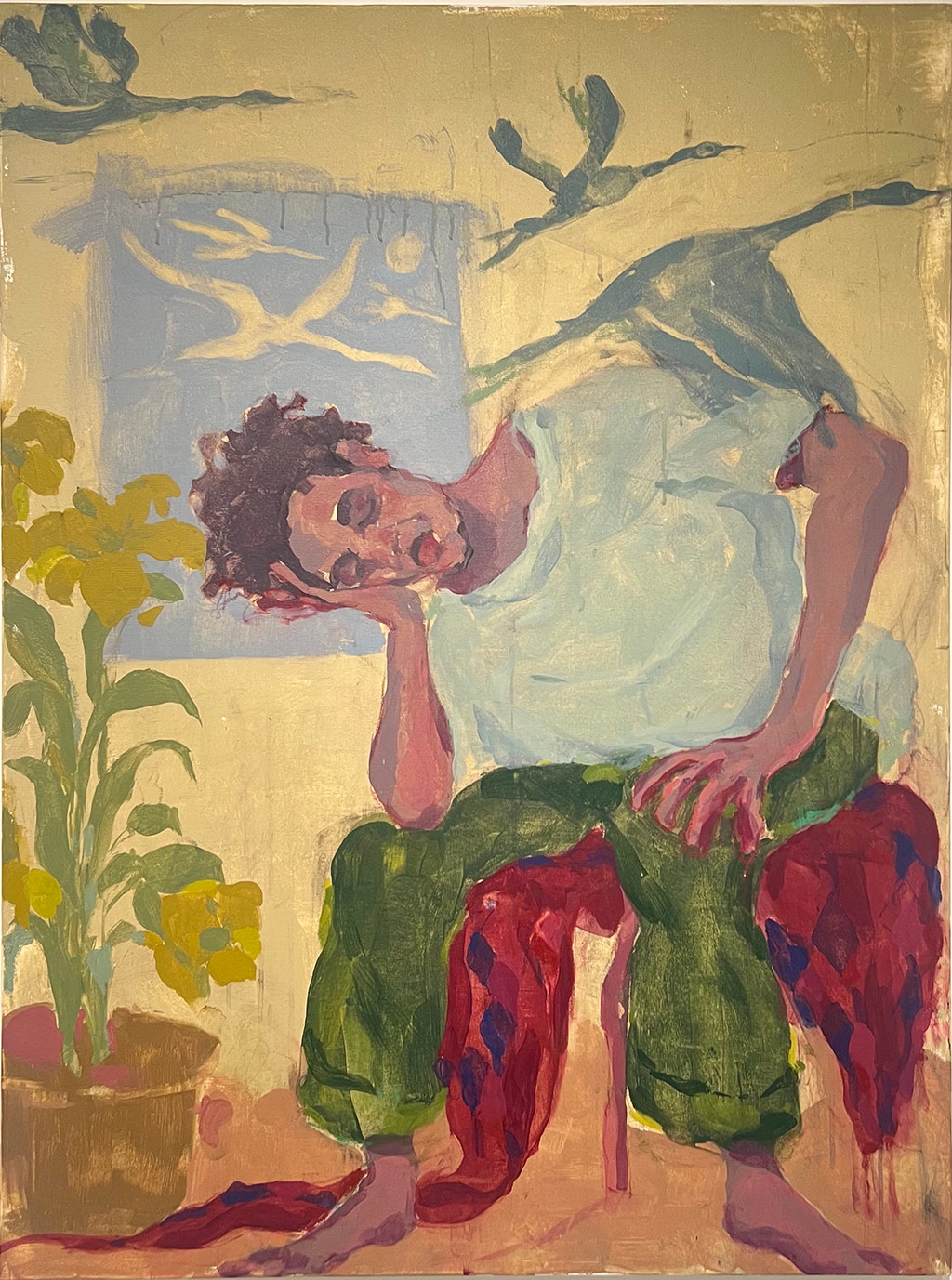
This familiar/unfamiliar dichotomy is particularly strange, when it comes to visiting the place where you grew up. On one hand, it could be an alien planet — as Dexter, Kansas must’ve seemed to Taryn Miller of Your Friend, who revisited it from the perpetual motion machine of her new home in Brooklyn, NY. And yet, there is the uncanny sense of familiarity to her latest record, Gumption — of objects that haven’t moved in decades, photos on the walls that have been there your entire life: the closest things to permanency in our otherwise furiously shifting lives.
This dichotomy creates a sense of cognitive dissonance on Gumption, which occupies a grey state somewhere between déjà vu and exploring an alien planet. It’s half nostalgic and half surrealistic, with formerly familiar shapes taking on a strange new life.
Gumption was inspired by Miller’s visit to her childhood home in Dexter, Kansas, after some success as a songwriter with her debut EP, Jekyll/Hyde. Miller was struck by the uncanny familiarity of her surroundings, and set out to make sense of it all, via the act of field recording. Miller wandered the fields, the barns, and her childhood home, capturing sounds both natural and manmade, which are then sculpted and reconfigured into ghostly, avant-garde folk pop tunes, as with the knocking washing machine rhythm that kickstarts “Come Back From It”, or the sound of a bubbling brook, transmogrified into a glassy organ on “To Live With”.
Many critics have taken exception to Miller’s ghostly, noisy dream folk pop, claiming the noise distracts from the message. For album opener, “Heathering”, Tiny Mix Tapes critic Frank Falisi says, “I don’t know what “Heathering” is about. I listen and I re-listen, and the song doesn’t help. Resolution and settlement are replaced with a buzzsaw synth that subsides into a stacked chorus of Miller’s voice. Five seconds later, the chorus distorts and folds into the machine, a human voice in noise.”
He also speaks on the musical nature of listening to mathematics, and the poetic nature of songs in general, comparing songwriting to signing your name or writing the letter “W”. While there may be some validity to some of these criticisms, particularly for those who like to sing and hum along with their tunes, a lot of listeners and critics seem to be overlooking the alchemical nature of Gumption.
The mutant field recordings expertly evoke the uncanniness of visiting a once-familiar locale, while the dreamy swathe of reverb that surrounds Miller’s voice, throughout the entire record, is a beautiful approximation of the distance and detachment that comes from feeling like an outsider. All the while, these feelings and sentiments are being underpinned by the songwriting itself, like the guitar hooks on “Heathering”, which form a sense of constancy and familiarity between the choruses, as the concept of “Home” does for us all, throughout our lives.
It’s understandable how someone looking for a straight-up pop record could miss the point of Gumption. The production, with a little help from The War On Drugs’ Nicholas Vernhes, favors an experimental, nearly-shoegaze presentation, with the main elements brought to the foreground, while nuances and filigree of synths, sound FX, and drum machines dance around the peripheries like morning-after tracers. Instead of getting in your face and telling you what the song is about, it invites repeated visitations, like a half-remembered daydream, or, in fact, like going home periodically.
All in all, Your Friend’s Gumption is like being thrust through the veneer on an Andrew Wyeth painting, to find a modern, mutating, surrealist world in the canvas. Washing machines get up and dance a chorus line while barn pigeons applaud their approval. There are diaries in the drawers, and flowers in the vases. It’s beautiful and peaceful, while being modernist and unsettling at the same time. And, more than anything else, Gumption is the mark of a songwriter moving forward, while looking backward, developing her craft and pushing music forward into strange and exciting new directions.
 Andrew Wyeth – Spring, 1978
Andrew Wyeth – Spring, 1978
Ω







